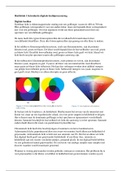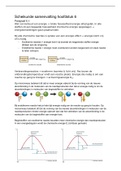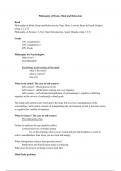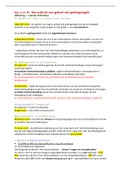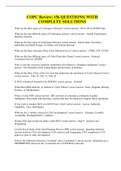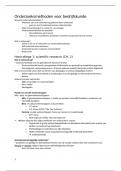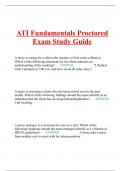Notes :
Week 1 :
Lecture 1 :
Situated within the subfield of comparative politics
Global reach, multiple countries
Universe of countries, also within countries
Regime types, inequalities …
- Methodologically eclectic
• Wage of wars, what to do, where and what, how did wars happen?
• Archived, field research or both
- Global scope
Debate with academic literature
- People disagreeing, engage in debates
- Hard to get which is right and which is wrong
- Find our way, and evidence
Beyond DAT?
- Core Module Comparative Politics
- Diversity, Equality, Justice
- Various BAWCs and BARPs
Cross national variance
Liberal Democracy Index.
What the patterns are?
What may be patterned?
Already theorizing
Liberal democracy and wealth?
Is wealth a precondition for democracy?
Colonialism?
,High degree of variance between the colonized ones as well (US was a colony, Australia as well
…)
What explains the difference?
Maybe it has to do with Islam, autocracy …
Uncommon to see autocracy surrounded by democracies and the other way around.
Not one theory perfect.
When explaining variance, countries differ. What explains it?
Topics to interesting to have one explanation.
Also variance between the regions in a country.
Cross-sectional variance.
Differences across space and time.
Longitudinal variance
Democratic back sliding
Democracy. So what?
Amartya Sen – Democracy as a Universal Value
,“A country does not have to be deemed fit for democracy; rather, it has to become fit through
democracy.”
Regime type as an outcome.
A regime type is a consequence and can be a cause.
Rational causality between regime types and other things
Democracy is not something to wait for: democratize, and then we will see.
3 ways of looking at what the value of democracy is:
1- Intrinsic:
a. People are political animals, being a part of a community, being able to live in
dignity is people that value in and out of themselves
2- Instrumental
a. Democracy creates certain incentives for elites
b. Entails elite that are held accountable, keeps them responsible
3- Constructive
a. Allows citizens to formulate an opinion in the first place
b. Take preferences into account
c. Create an interest
d. Peaceful conflict resolution.
Relative statements, these conditions apply to democracies compared to autocracies.
Not absolute, more likely
Democracy as outcome (DV) vs democracy as cause (IV).
Dependent variable, outcome
Treat regime types as an outcome
Why study Democracy?
Can have consequences for range of factors
“The case for Democracy” conference. All studies are not 100%. Need to illustrate causality.
Research designs in some of these studies major.
Why particular cause and effects?
“The Lee Hypothesis”
Transforming Singapore from fishermen town to one of the biggest success story city:
megalopolis
Democracy first, economic outcome after
But no: There is no time for democracy if you want to develop economically. People want jobs
first: get them jobs, and then we can talk about civil liberties
Democracy is not something we want at the moment.
, Singapore was achieved at the cost of civil and political liberties
Singapore has been really rich for a while.
Slow strikes: power is hard to give up
Argument that authoritarian states are better at achieving economic growth, desirable
economic outcome
≈ Shangai and Dubai
In order to develop economically, democracy is just a messy system
Democracy -> growth
Red line: Democracies
Blue: Autocracies
On average, there is more growth in democracies than autocracies
Variance among autocracies: more likely to go to catastrophes (famines … example of India:
under England a lot, independent not anymore).
For every Singapore, there is a famine.
If you break this down by time period, breakdowns, and events
Autocratic growth much more volatile.
Recent time period and negative growth: 7% of democracies and 30% of autocracies
Democracies -> Social protection
Outcome: social protection.
Focus only on 77 developing countries
Theory: level of democracy in the country.
Explains within not between
Most important factor: tax capacity
Week 1 :
Lecture 1 :
Situated within the subfield of comparative politics
Global reach, multiple countries
Universe of countries, also within countries
Regime types, inequalities …
- Methodologically eclectic
• Wage of wars, what to do, where and what, how did wars happen?
• Archived, field research or both
- Global scope
Debate with academic literature
- People disagreeing, engage in debates
- Hard to get which is right and which is wrong
- Find our way, and evidence
Beyond DAT?
- Core Module Comparative Politics
- Diversity, Equality, Justice
- Various BAWCs and BARPs
Cross national variance
Liberal Democracy Index.
What the patterns are?
What may be patterned?
Already theorizing
Liberal democracy and wealth?
Is wealth a precondition for democracy?
Colonialism?
,High degree of variance between the colonized ones as well (US was a colony, Australia as well
…)
What explains the difference?
Maybe it has to do with Islam, autocracy …
Uncommon to see autocracy surrounded by democracies and the other way around.
Not one theory perfect.
When explaining variance, countries differ. What explains it?
Topics to interesting to have one explanation.
Also variance between the regions in a country.
Cross-sectional variance.
Differences across space and time.
Longitudinal variance
Democratic back sliding
Democracy. So what?
Amartya Sen – Democracy as a Universal Value
,“A country does not have to be deemed fit for democracy; rather, it has to become fit through
democracy.”
Regime type as an outcome.
A regime type is a consequence and can be a cause.
Rational causality between regime types and other things
Democracy is not something to wait for: democratize, and then we will see.
3 ways of looking at what the value of democracy is:
1- Intrinsic:
a. People are political animals, being a part of a community, being able to live in
dignity is people that value in and out of themselves
2- Instrumental
a. Democracy creates certain incentives for elites
b. Entails elite that are held accountable, keeps them responsible
3- Constructive
a. Allows citizens to formulate an opinion in the first place
b. Take preferences into account
c. Create an interest
d. Peaceful conflict resolution.
Relative statements, these conditions apply to democracies compared to autocracies.
Not absolute, more likely
Democracy as outcome (DV) vs democracy as cause (IV).
Dependent variable, outcome
Treat regime types as an outcome
Why study Democracy?
Can have consequences for range of factors
“The case for Democracy” conference. All studies are not 100%. Need to illustrate causality.
Research designs in some of these studies major.
Why particular cause and effects?
“The Lee Hypothesis”
Transforming Singapore from fishermen town to one of the biggest success story city:
megalopolis
Democracy first, economic outcome after
But no: There is no time for democracy if you want to develop economically. People want jobs
first: get them jobs, and then we can talk about civil liberties
Democracy is not something we want at the moment.
, Singapore was achieved at the cost of civil and political liberties
Singapore has been really rich for a while.
Slow strikes: power is hard to give up
Argument that authoritarian states are better at achieving economic growth, desirable
economic outcome
≈ Shangai and Dubai
In order to develop economically, democracy is just a messy system
Democracy -> growth
Red line: Democracies
Blue: Autocracies
On average, there is more growth in democracies than autocracies
Variance among autocracies: more likely to go to catastrophes (famines … example of India:
under England a lot, independent not anymore).
For every Singapore, there is a famine.
If you break this down by time period, breakdowns, and events
Autocratic growth much more volatile.
Recent time period and negative growth: 7% of democracies and 30% of autocracies
Democracies -> Social protection
Outcome: social protection.
Focus only on 77 developing countries
Theory: level of democracy in the country.
Explains within not between
Most important factor: tax capacity

